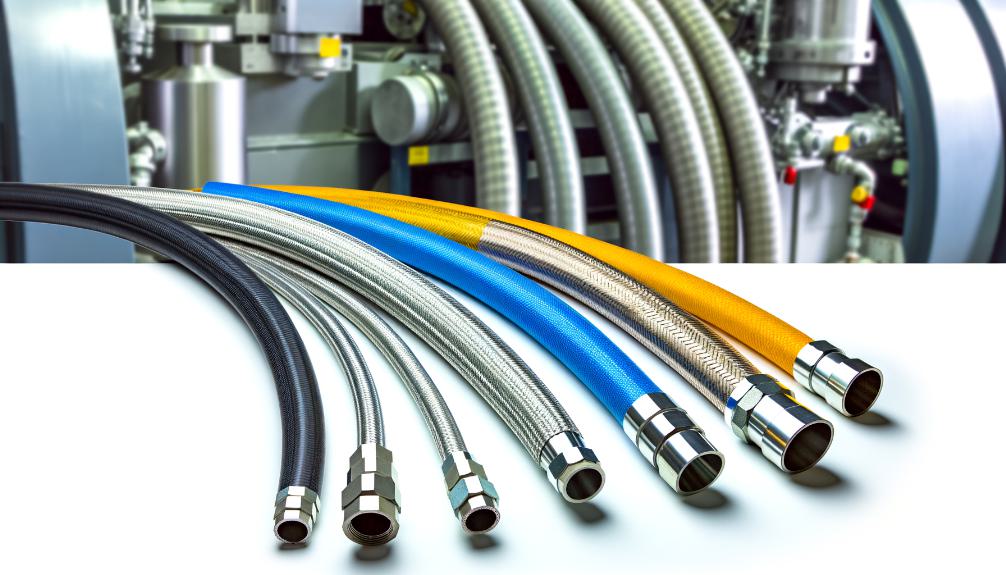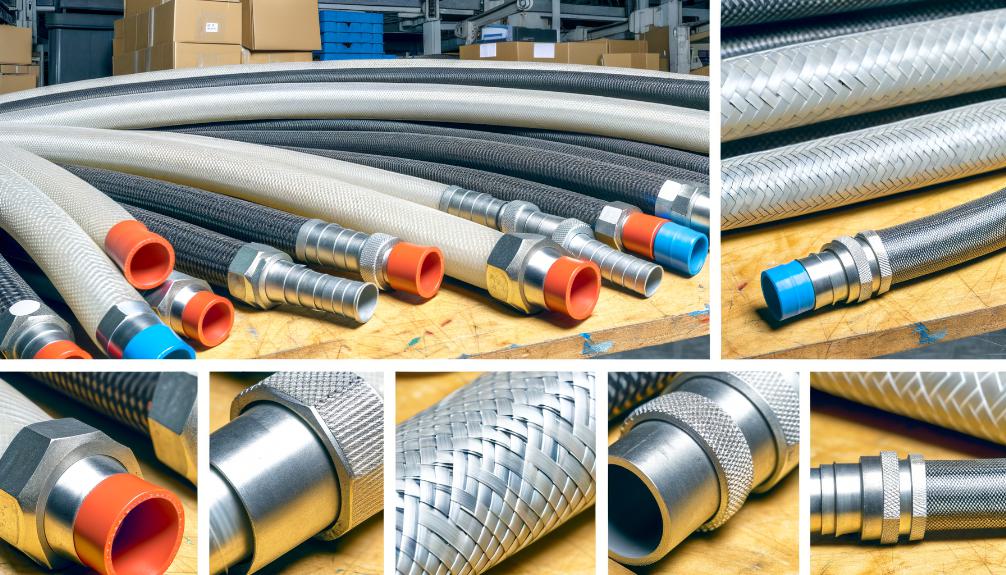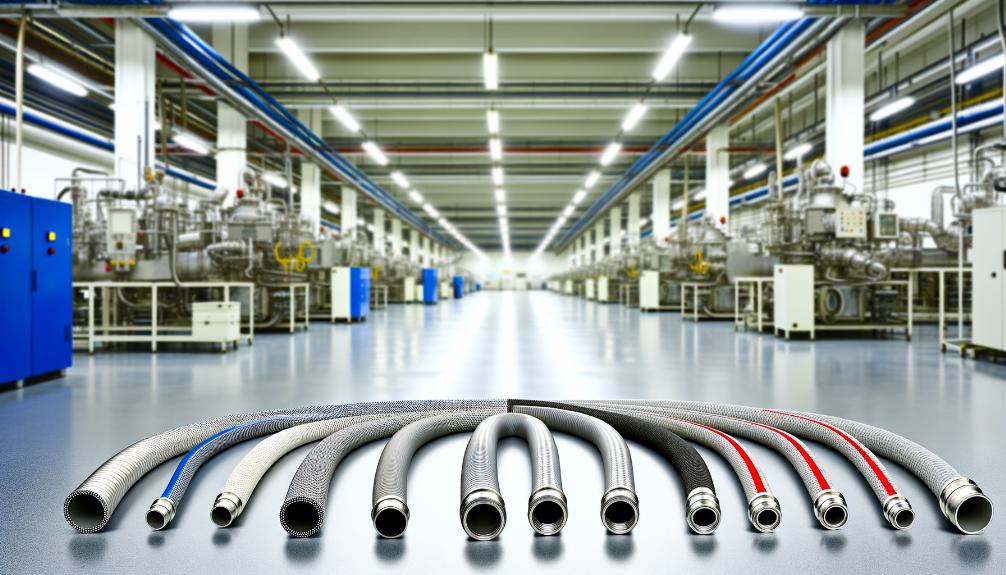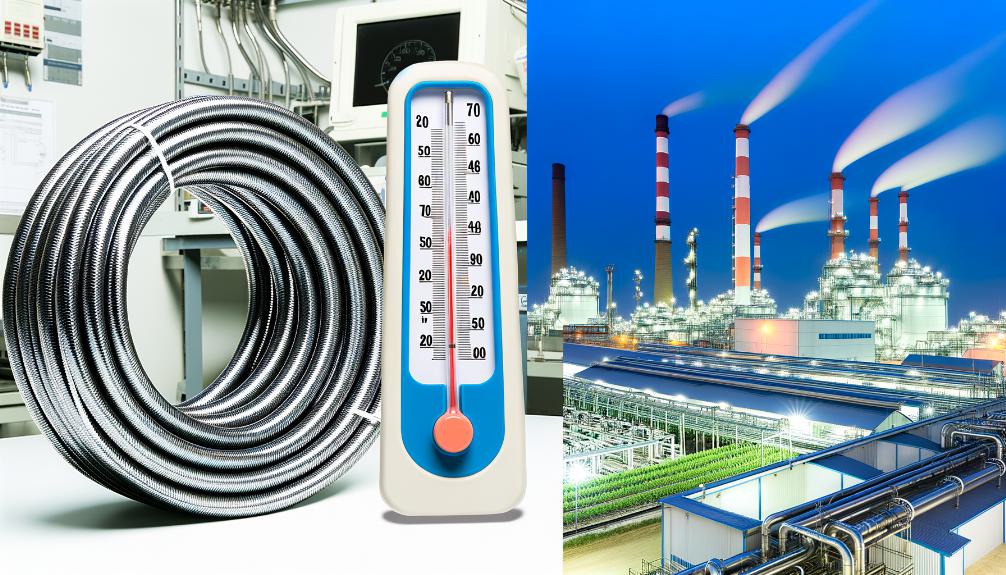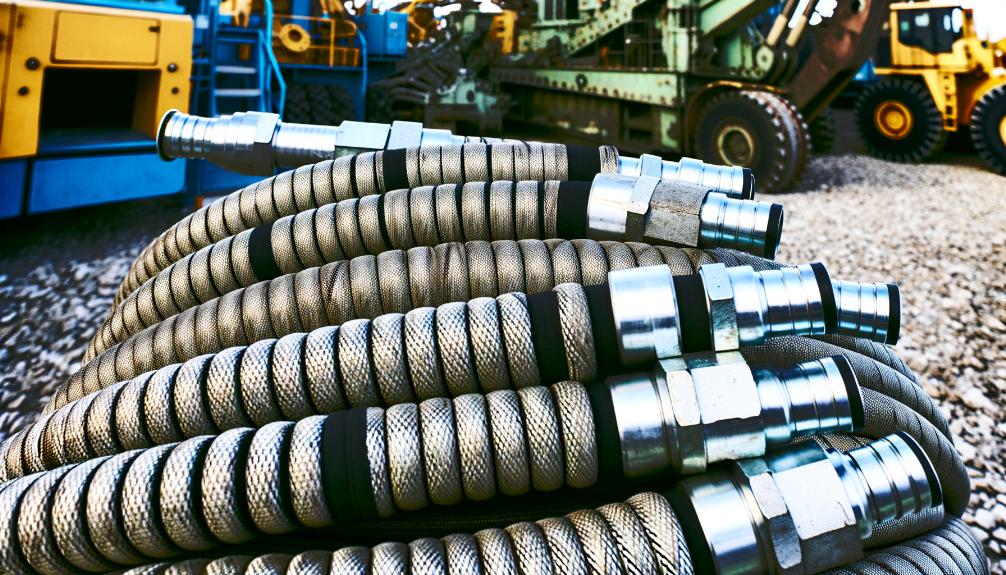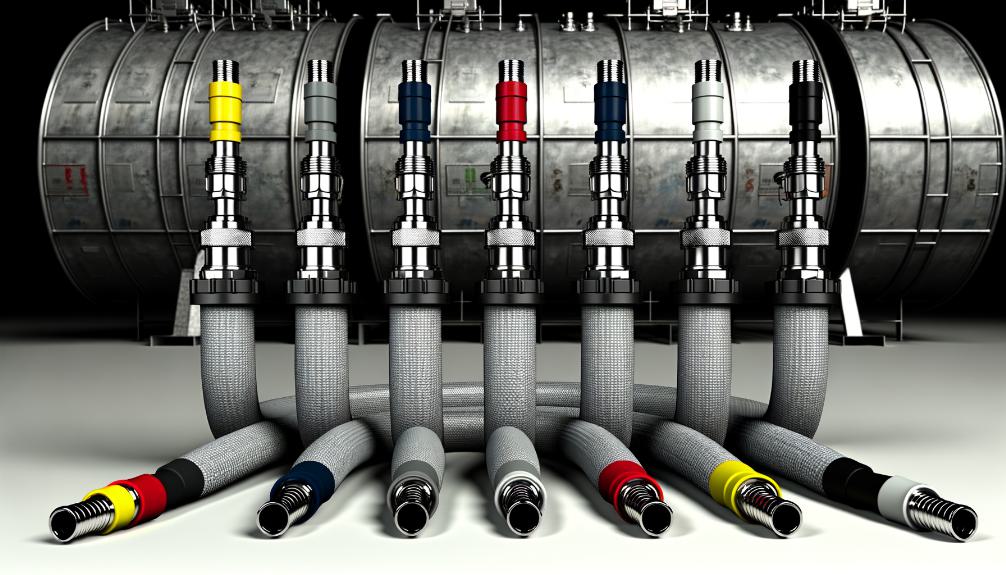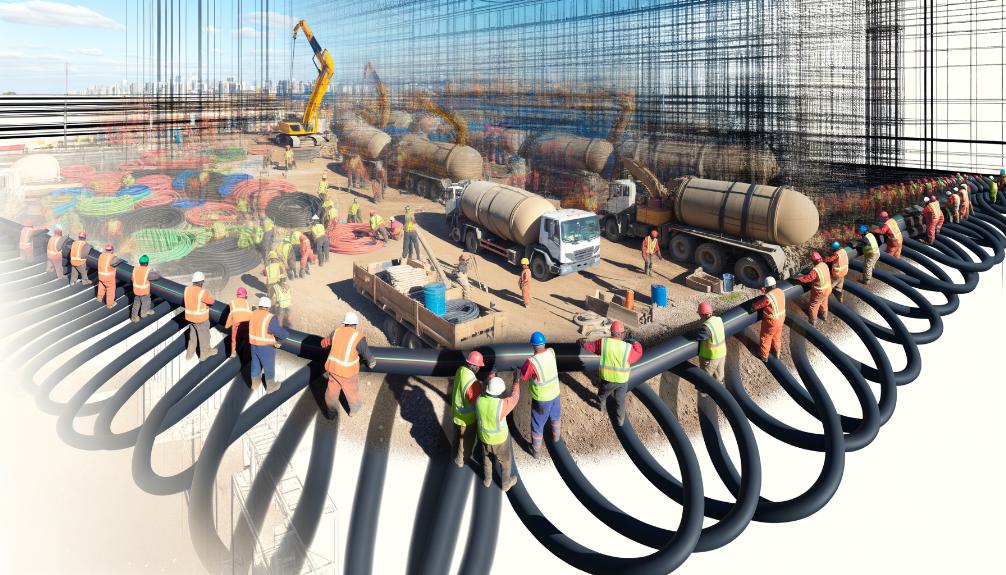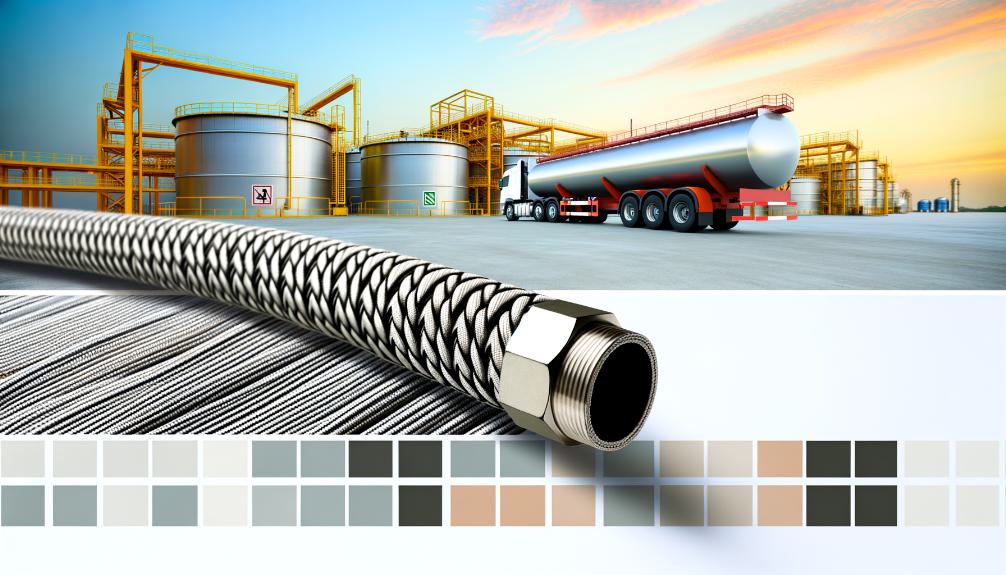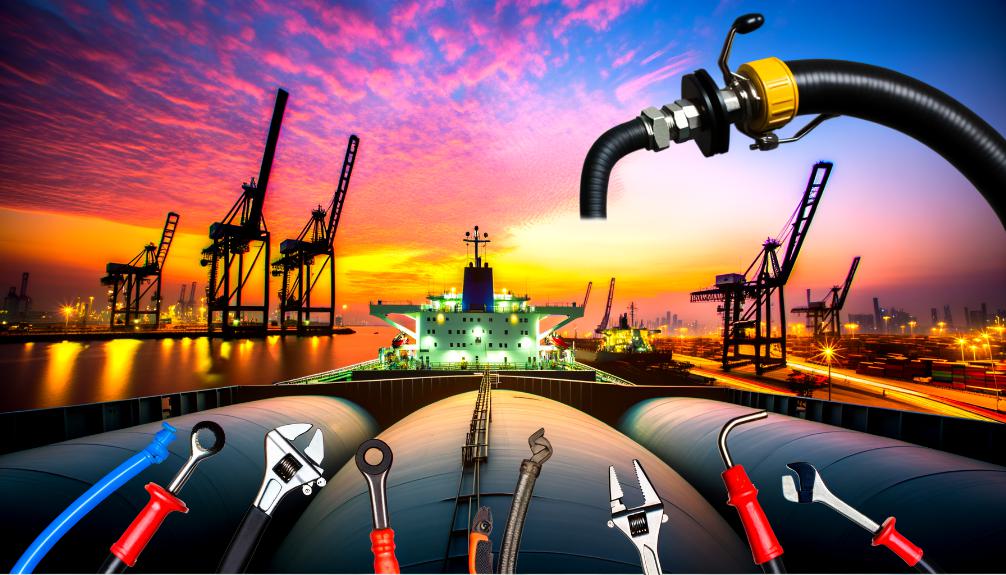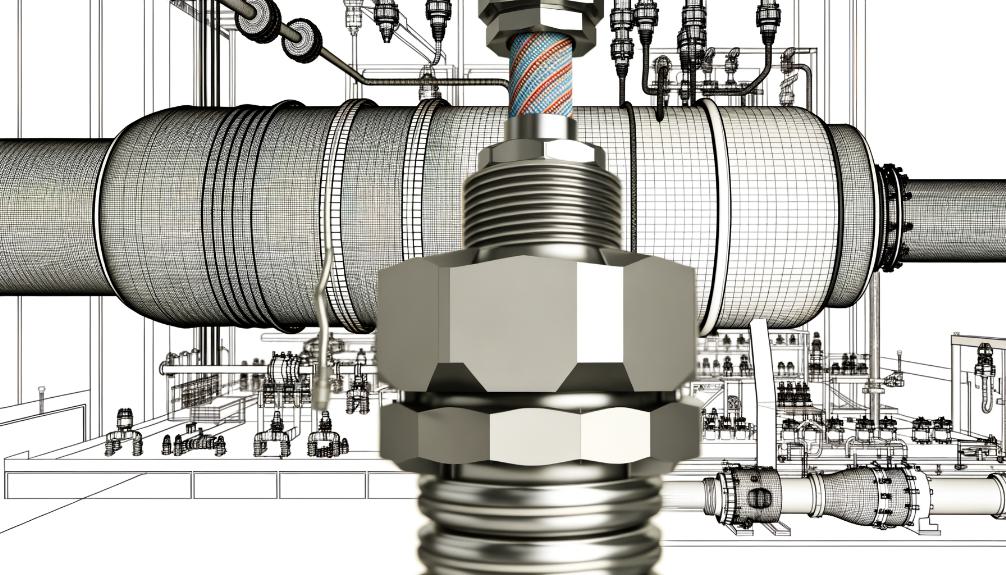When choosing materials for high-pressure hoses, you'll find stainless steel, Teflon (PTFE), rubber, polyurethane, nylon, PVC, and composite hose as top contenders. Stainless steel offers unmatched durability and resistance to extreme temperatures and corrosion, making it ideal for rigorous conditions. Teflon excels in chemical resistance and temperature tolerance, supporting a wide range of applications. Rubber… Continue reading What Are the Top Materials for High-Pressure Hoses?
Category: Hoses
5 Best Industrial Flexible Hoses and Their Fittings
When you're selecting industrial flexible hoses and their fittings, consider these top options: Stainless Steel Braided Hoses, known for their durability and corrosion resistance, are perfect for harsh environments. PTFE Lined Flexible Hoses offer exceptional chemical resistance and temperature stability, making them ideal for aggressive fluids. Silicone Rubber Hoses provide high temperature resistance and flexibility.… Continue reading 5 Best Industrial Flexible Hoses and Their Fittings
What Are the Top Flexible Hoses for Industry?
When selecting the top flexible hoses for your industry, consider the diameter, material, and connection types. Standard diameters range from 1/4 inch to 12 inches, affecting flow rate and pressure capacity. For materials, stainless steel hoses offer heat and corrosion resistance, while rubber hoses provide broad chemical compatibility. Key features to evaluate include material compatibility… Continue reading What Are the Top Flexible Hoses for Industry?
3 Best Temperature Ranges for Composite Hoses
When you're working with composite hoses, it's crucial to match the hose to the right temperature range for best performance. For low-temperature applications, they're flexible down to freezing, making them ideal for transporting liquefied gases. In moderate temperatures, ranging from 5°C to 100°C, their chemical and thermal stability shine, supporting a variety of industrial applications.… Continue reading 3 Best Temperature Ranges for Composite Hoses
Top High-Pressure Hoses for Heavy-Duty Use
When selecting top high-pressure hoses for heavy-duty applications, you'll want to focus on materials that meet specific performance criteria. Opt for a hose with a burst pressure rating at least four times higher than your system's operational pressure. For chemical resistance, Teflon hoses are superior, while stainless steel stands out for high-temperature endurance. Verify that… Continue reading Top High-Pressure Hoses for Heavy-Duty Use
Top 5 Composite Hoses for Chemical Resistance
When selecting top composite hoses for chemical resistance, you need to prioritize materials, construction quality, and brand reputation. Flexaust and Pacific Echo stand out for their durable construction, while Kanaflex and Uni-Chem lead with cutting-edge technology. Tudertechnica is notable for its high temperature and pressure capabilities. Assess the chemical compatibility particularly with the specific chemicals… Continue reading Top 5 Composite Hoses for Chemical Resistance
7 Benefits of Composite Hoses in Flexible Construction
Composite hoses offer remarkable advantages in flexible construction. You'll find they possess enhanced durability and strength due to their layered structure, which resists wear and increases longevity. Their superior chemical resistance means they can handle various substances without corroding, thereby reducing your maintenance costs. These hoses are also lightweight and flexible, easing installation in tight… Continue reading 7 Benefits of Composite Hoses in Flexible Construction
Why Should You Use Composite Hoses for Petroleum Transportation
You should use composite hoses for petroleum transportation because they're uniquely designed to handle the demands of this task. Their layered construction of thermoplastic and fabric enhances both flexibility and durability, reducing handling time and the risk of kinking. They're also lightweight, which lowers fuel and operational costs considerably. Additionally, they offer excellent chemical resistance,… Continue reading Why Should You Use Composite Hoses for Petroleum Transportation
Advantages of Composite Hoses in Oil Transfer Applications
In oil transfer applications, you'll find that composite hoses offer significant advantages. Their multi-layer construction provides superior flexibility, allowing for severe bending without damage. They're also lightweight, which eases installation and reduces strain on your system. Safety is enhanced with built-in fire resistance and pressure monitoring systems, enabling quick responses to pressure changes and preventing… Continue reading Advantages of Composite Hoses in Oil Transfer Applications
Why Are Composite Hoses Effective for Leakage Prevention?
Composite hoses are highly effective in preventing leaks due to their specialized multi-layered structure. These layers include chemical-resistant materials like polypropylene and polyamide, reinforced with steel or polymer wires. This design not only enhances flexibility but also guarantees durability against mechanical stress and chemical exposure. The careful layering and construction reduce the risk of permeation,… Continue reading Why Are Composite Hoses Effective for Leakage Prevention?
